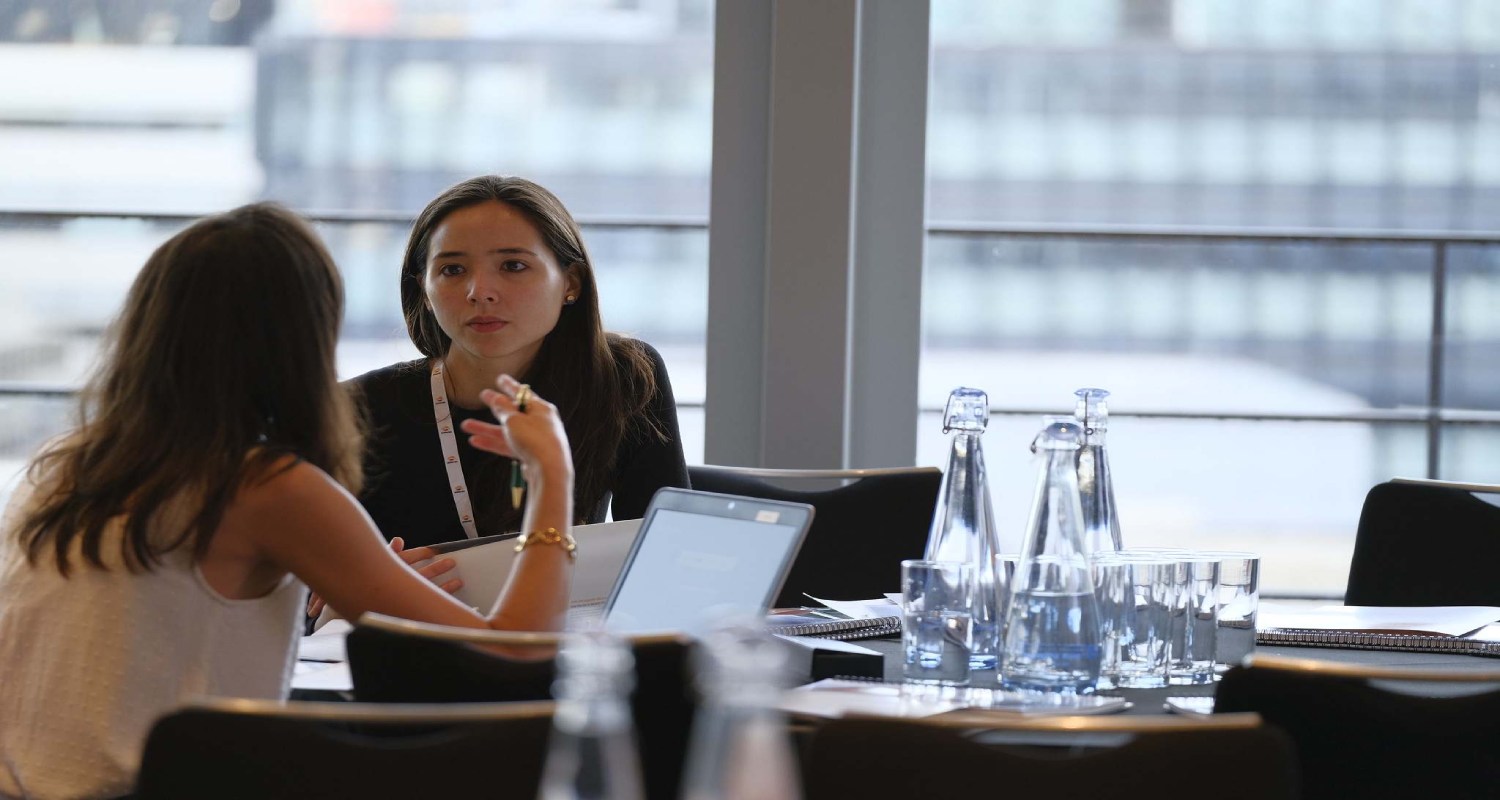
Critical thinking - How to develop it effectively
Critical thinking - How to develop it effectively
Develop your critical thinking
Develop your critical thinking
An essential skill in today's society.


Critical thinking consists of analyzing information through logical, objective, and analytical processes to address problems and make decisions in a reasoned manner.
No other period in the history of humanity is known where we have had access to so much information. Tonnes of data, studies, and all types of informative content are stacked on the internet. In order to be able to manage it, it is practically mission impossible.
Now, more than ever, we need to enhance new personal skills that allow us to filter excess information appropriately and which, in turn, allow us to improve our analytical capacity to avoid falling for possible hoaxes, fallacies, or fake news. And, for this, critical thinking is crucial.
What is it? Why is it one of the most in-demand soft skills by companies today -especially in the area of young talent in STEM careers-? How can you enhance it?
We tell you all about it in this article.
What is critical thinking?
What is critical thinking?
Importance and advantages
Importance and advantages
Critical thinking has become one of the most in-demand soft skills by companies. Especially when hiring professionals that are going to carry out work related to Science, Technology, Engineering, and Mathematics -STEM environments-. Its development enhances analytical and problem-solving skills; key abilities in these sectors.
But, regardless of what the job is, opting for critical thinking will help you to grow and evolve professionally, as with it you will manage to:
- Improve your personal capacity to learn to distinguish between mediocre and brilliant arguments.
- Know how to differentiate valuable information from expendable information.
- Increase your ability to solve complex problems.
- Forge decisions much more quickly and successfully.
- Make informed decisions.
- Have a more objective and impartial view.
- Construct well-founded opinions, through knowledge of other perspectives.
- Gain autonomy and independence over your decisions, judgments, or opinions.
- Promote your analytical ability to not fall for hoaxes or fallacies, nor to be easily manipulated.
- Enhance your communicative abilities, improving your capacity to organize ideas and thoughts in a coherent and structured manner.
- Learn to retain and manage the information and knowledge you receive effectively, as well as learn to use them practically in your daily life.
- Promote your creativity when solving problems, facing complex situations, or making certain decisions.
- Increase resilience, improving your adaptation to changes. Now, critical thinking can not only help you at work. It also has major benefits on a personal level.
With the surge in clickbait, fake news, and tonnes of content circulating the internet without any kind of support that proves its veracity, having this ability can be of great help to avoid falling for hoaxes and avoid "disinformation". In this regard, something essential for that is (as well as promoting your critical thinking) having the capacity to identify the origin of the information sources that we consult.
Join the Repsol team
Check out the openings available.
Practical tips to develop critical thinking
Practical tips to develop critical thinking
Like any other human skill, critical thinking can be enhanced and developed.
Before starting, you must be aware that you will need "to open your mind" and adopt a flexible posture, that allows you to enhance your analytical and problem-solving skills.
Some tips that can help you to achieve it are:
- Research and don't just stick to one point of view. Broaden your perspectives and practice "healthy and intelligent" skepticism. Gather more information on the subject you are dealing with: look for official sources and compare them. This is the best way to combat misinformation and avoid falling for hoaxes or logical fallacies.
- Assess if the arguments are coherent and logical. Before believing any argument that you see, read, or hear (as logical or coherent it may seem), question all the premises on which it is based. By doing so, you'll be able to draw your own conclusions and determine whether the argumentation is correct or not. In addition, you will acquire the ability to recognize and identify more easily the so-called "fallacies", which are arguments that seem valid at the beginning, but in reality are not.
- Be proactive and look for solutions. Proactivity will help you to conceive every challenge as a real learning experience. Do not stop at any situation, no matter how complex it may seem.
- Question everything. One of the most important aspects when enhancing your critical thinking is analytical capacity. That's why it's important that, when you receive certain information, you take a step backwards and analyze it with perspective. Ask yourself questions, such as:
- Where does this information come from?
- Is it verified information?
- Have I assessed it from all possible perspectives?
- Am I making some kind of assumption about this? - Understand your mental processes It is as important to question the information we receive as it is to understand how we understand and interpret it. Inquiring about our subjective mental analysis and resolution processes will help you to know your opinions or if you have any prejudices or biases, and how these influence when addressing a certain topic or adopting a decision.
- Cultivate your curiosity. Although at the start it may not seem like it, curiosity is a skill directly related to critical thinking. And it is responsible for wanting to undertake an active search for information in order to better understand the world around us. That's why you mustn't be scared to explore. Be curious, broaden your interests, and escape your comfort zone. Read about several topics, find out different opinions and perspectives, don't take anything for granted, and look beyond the obvious.
Critical thinking will help you to question the obvious, examine what at the start seems obvious, and to consider the unthinkable.
In summary, by enhancing and developing critical thinking, you'll be improving your analytical and problem-solving capacity, while you'll avoid falling for hoaxes, fallacies, or prejudices. Without doubt, something essential for personal, professional, and academic growth.

Join our team and make an impact on the future of energy
Join our team and make an impact on the future of energy
We are a global company where 24,000 people representing 79 nationalities work in over 20 countries.
We are looking for talented people to help us create value in a sustainable way.


